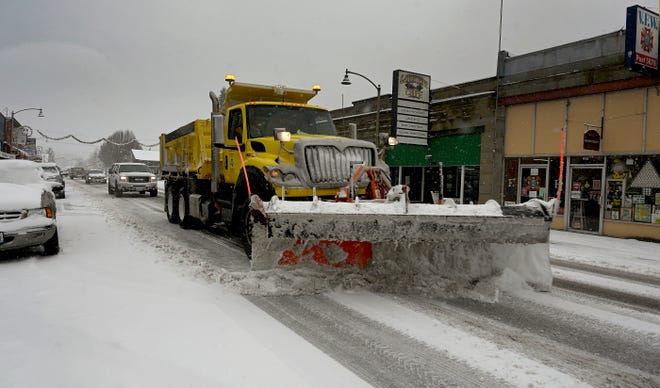
Snow and rain continued to pummel a swath of the West on Monday while a holiday heat wave swept across parts of the Southern Plains as the wild run of weather continued across the nation.
Forecasters warned the weather pattern was not expected to change soon.
"Significant snowfall to continue for portions of West Coast mountain ranges and the Intermountain West," National Weather Service Meteorologist Peter Mullinax wrote in Monday advisory. "Record cold for parts of the West Coast."
A 70-mile stretch of Interstate 80 in western California to the Nevada state line was overwhelmed by whiteout conditions and closed through at least Monday. Other major roads were closed because of dangerous conditions as snow measured in feet continued to fall.
A storm tracking across the Intermountain West on Monday night and into Tuesday morning could mean up to three feet of snow in higher elevations of the Sierra Nevada. From the Wasatch to the Colorado Rockies, mountain snow totals of a foot or more were forecast; localized amounts up to 2 feet were possible.
CHRISTMAS WEEKEND STORM: Snow blankets Western USas South breaks records for high temps
Mullinax said the "unrelenting" pattern over the West Coast would begin spreading east, fueling a storm in the Upper Midwest on Monday morning that could bring 6 inches to parts of Minnesota. Farther east, warmer air aloft will support the potential for an icy wintry mix from the Great Lakes to Pennsylvania.
"Travel delays due to icy conditions are possible ... on the ground and in the air," he said.

Farther south was a far different story. The southern and southeastern U.S. continue to be under the influence of a system that will provide above-normal temperatures through midweek.
"Record warm temperatures are expected for broad areas of the South," Mullinax said. "Parts of the South Central U.S. will soar into the 70s and 80s once again this afternoon, with temperatures becoming warmer across much of the Deep South by Tuesday."
Numerous record warm highs and lows are on tap Tuesday and Wednesday, he said, and the abnormally warm temperatures, mixed with dry conditions and gusty winds, provide an elevated risk for wildfires.
Source link







